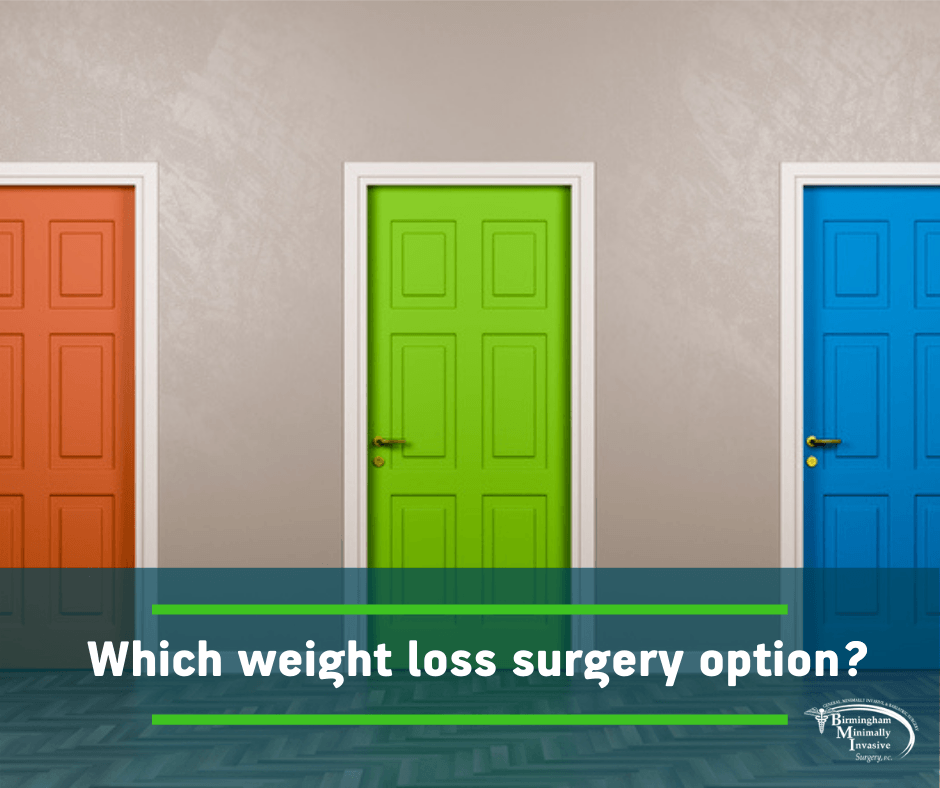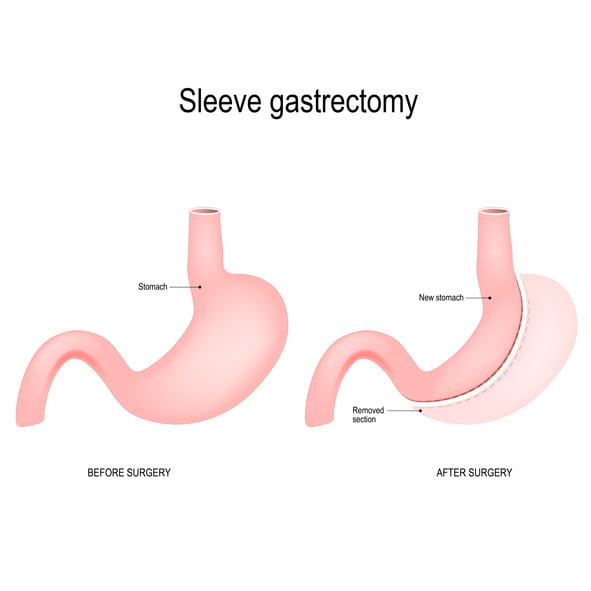

We have found that prospective patients often have it in their mind that weight loss surgery is super expensive. They may also think that there’s no way insurance will cover it. But we are happy to let you know that neither of these assumptions is correct.
At Birmingham Minimally Invasive Surgery (BMI Surgery), our competitive prices for weight loss surgery cannot be beaten by any other clinics, but what’s even more important is that we offer so much value for the price you pay. In this article, we will look at our three most popular weight loss surgery options, the cost for each, and all that’s included.
The Value You Get at BMI Surgery
In general, bariatric surgery prices vary based on type, level of invasiveness, and where you choose to have your surgery done. Unlike the doctors at many weight loss surgery practices, our physician, Dr. Jay Long, has years of specialized bariatric surgery training. He completed a fellowship in minimally invasive and bariatric surgery at The Methodist Hospital in Houston, Texas, where he focused on taking care of patients that are morbidly obese.
Dr. Long brings this extensive experience to BMI Surgery. We have developed great skill in successfully achieving permanent weight loss for our patients. Our facilities are built for procedures like gastric sleeve surgery and other weight loss surgery options, and we specialize in making weight loss surgery as painless as possible.
When you come in to talk to us about the possibility of having weight loss surgery, Dr. Long provides a one-on-one consultation. This helps each individual decide which weight reduction option is best. A multi-disciplinary team also offers further advice before and after surgery through monthly support meetings, a nutrition/prep class, and customized high protein diets.
Gastric Bypass Costs and Value
“How much does it cost to have gastric bypass surgery?” The short answer is that gastric bypass surgery starts at $15,999 cash pricing. The cost can go up to $18,500 cash pricing for laparoscopic gastric bypass.
But what exactly is included in this cost? A lot!
- Pre-operative testing, blood work, and EKG, if necessary
- Pre-operative nutrition evaluation
- Surgeon fee for the procedure
- Anesthesiologist fee
- Hospital fee with one night in the hospital after surgery
- Post-operative visit with the nutritionist within four weeks of surgery
- Monthly support group meetings
The cost may be somewhat less than the numbers mentioned above for patients who do have insurance coverage. However, insurance companies that do provide coverage of some sort typically have many requirements that you must meet, such as a physician-supervised diet that often takes up to seven months. By paying out of pocket for the procedure, you can start the journey towards a better, healthier life much more quickly.
Gastric Sleeve Costs and Value
Several factors contribute to the costs of gastric sleeve surgery. Gastric sleeve surgery is considered one of the less invasive weight loss procedures. It requires less time spent in surgery and a shorter hospital stay for most patients. This allows us to offer gastric sleeve at a lower price than some other weight-loss surgeries.
Obesity is officially recognized as a disease by the American Medical Association. The health risks associated with it are so high that many insurance plans will cover most, if not all, of the costs of the surgical procedure for gastric sleeve surgery. However, because there are so many different plans, and there are instances where there is no coverage for weight loss surgery, we encourage you to schedule an appointment with us to discuss your options.
Private pay is a very common option for those who are not covered by their insurance or choose to pay without using insurance. While prices vary among different surgeons, our gastric sleeve surgery at Birmingham Minimally Invasive starts at just $8,999, making it an affordable option for many.
$8,999 cash pricing includes:
- Pre-operative testing, including blood work and EKG, if necessary
- Surgeon Fee for the procedure
- Anesthesiologist Fee
- Post-operative office visits for 90 days
- Surgery Center Fee (Not all patients will be candidates for outpatient surgery. If the procedure has to be performed in the hospital, the total price will be $12,800, and this cost will cover a one-night stay in the hospital.)
- Monthly support group meetings
The LAP-BAND Costs and Value
This minimally invasive procedure is one of the most common weight loss surgery options. In fact, it is generally thought to be the least “traumatic” of all weight-loss surgeries. It does not require any cutting, stapling, or stomach rerouting. This means less post-operative pain, a shorter hospital stay, reduced recovery time, and a lower cost.
The cost of the LAP-BAND is $7,999, and this cash pricing includes the following:
- Pre-operative testing, including blood work and EKG, if necessary
- Pre-operative nutrition evaluation
- Surgeon Fee for the procedure
- Anesthesiologist Fee
- Surgery Center Fee (LAP-BAND is performed on an outpatient basis)
- Post-operative visit with the nutritionist within four weeks of surgery
- Monthly support group meetings
The LAP-BAND is on the lower end of the scale in terms of weight loss surgery cost. This is often especially appealing for those who will be paying out of pocket rather than using insurance assistance for payment.
Any kind of weight loss surgery will be a big investment, but it’s an important one. You are investing in your own health, but you are also investing in your family, your career, and your overall well-being. At BMI Surgery, we will work with you and any insurance coverage you have to make surgery possible!
Find out more about the cost of weight loss surgery at BMI Surgery!
The caring group of professionals at Birmingham Minimally Invasive Surgery will help you get started on your weight loss journey and stay with you every step along the way. Dr. Long and his team specialize in all types of bariatric surgery, including gastric sleeve surgery, gastric bypass, and the LAP-BAND. Visit us today at http://www.bmisurgery.com/ or give us a call to set up a consultation at 205-833-6907.










